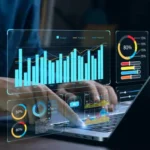Summer camps are a rite of passage for children, offering a perfect mix of fun, learning, and personal growth. In 2025, summer camps are more innovative, inclusive, and enriching than ever. Whether your child is a budding artist, a future scientist, or an outdoor enthusiast, there’s a summer camp activity that suits their personality and passion. Let’s explore the top summer camp activities for kids in 2025 that balance recreation with education, creativity with critical thinking, and adventure with responsibility.
1. Arts and Crafts Exploration
Age group: 4–12 years
Skills developed: Creativity, fine motor skills, self-expression
Children love to create, and arts and crafts sessions are a camp classic. From origami and paper mâché to recycled art and watercolor painting, these sessions fuel imagination while building coordination.
Trend in 2025: Camps are integrating eco-art, where kids use natural and recycled materials to make sustainable art projects, raising awareness about environmental conservation.
2. Outdoor Adventure and Nature Walks
Age group: 6–14 years
Skills developed: Observation, physical fitness, appreciation for nature
Getting kids outside is one of the best things summer camps can do. Nature walks, scavenger hunts, hiking, and obstacle courses help children connect with the outdoors and develop a sense of curiosity.
2025 Add-on: Interactive nature journaling using tablets and AI apps to identify plants and birds.
3. STEM Discovery Labs
Age group: 7–15 years
Skills developed: Logical thinking, coding, teamwork, curiosity
STEM (Science, Technology, Engineering, Mathematics) activities are increasingly part of modern summer camps. Coding a simple game, building a robot, conducting safe chemical experiments, or understanding space science—all make STEM exciting and tangible.
What’s new in 2025? Camps are using ChatGPT-based tools to help kids write mini science stories or debug basic code with conversational AI support.
4. Performing Arts and Drama
Age group: 5–16 years
Skills developed: Confidence, public speaking, emotional intelligence
Drama, dance, and music camps give children the stage to express themselves. Whether it’s acting in a play, singing, or learning a musical instrument, performing arts enhance communication skills and build confidence.
Modern twist: Virtual reality headsets are used to create immersive theater scenes where kids rehearse in simulated environments before real-world performances.
5. Sports and Team Games
Age group: 6–16 years
Skills developed: Discipline, team spirit, motor skills
From traditional games like soccer and volleyball to fun games like sack races and tug-of-war, physical activities are an essential part of any summer camp. They promote health and teamwork while giving children a fun outlet for energy.
Highlight of 2025: Camps are incorporating sports analytics tools that teach kids how to track performance metrics and improve their game.
6. Gardening and Environmental Activities
Age group: 4–12 years
Skills developed: Responsibility, patience, ecological awareness
Gardening is an ideal hands-on activity that connects kids with nature and teaches them about food cycles and responsibility. Composting, planting seeds, and creating terrariums are popular among eco-conscious camps.
In 2025: Kids can log plant growth using a smartphone app and see predictions for future yields using simple AI tools.
7. Culinary Creativity and Cooking Basics
Age group: 8–14 years
Skills developed: Nutrition awareness, measuring skills, confidence
Cooking camps teach kids everything from baking cookies to assembling nutritious snacks. It’s a fun and practical skill that encourages independence and healthy eating.
New idea: Interactive recipe builders that adapt based on what’s in a kid’s pantry at home—great for post-camp learning too.
8. Digital Literacy and Safe Online Practices
Age group: 9–16 years
Skills developed: Cyber hygiene, digital creativity, communication
In the age of smartphones and AI, kids need digital smarts. Summer camps are teaching children how to use the internet safely, spot misinformation, and build simple blogs or graphics using tools like Canva and ChatGPT.
New for 2025: Mini-courses on ethical AI use, with fun debates about how AI like ChatGPT works and what it can (and can’t) do.
9. Life Skills and Leadership Bootcamps
Age group: 10–17 years
Skills developed: Time management, emotional regulation, problem-solving
Life skills training helps children navigate real-world challenges. These sessions focus on leadership, teamwork, negotiation, and handling failure gracefully.
Trend: Camps are using simulation games and escape room-style problem-solving activities to teach leadership and cooperation.
10. Cultural Exchange and Language Learning
Age group: 7–15 years
Skills developed: Empathy, language acquisition, global awareness
Many camps now offer language sessions (like Spanish, French, or Japanese) and cultural exchanges through pen pal programs or international storytelling sessions.
Advanced twist: AI-driven language apps allow real-time pronunciation feedback and interactive conversation practice in a gamified setting.
Benefits of Summer Camp Activities
- Improved social skills
- Enhanced emotional intelligence
- Early exposure to hobbies and careers
- Reduced screen time
- Boost in self-confidence and independence










Leave a Reply